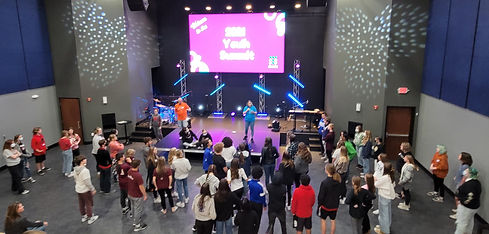Child Safety
Learn:
-
About one in 10 children will be sexually abused before their 18th birthday.
-
39% of 7 to 12-year-old girls with a history of child sexual abuse have academic difficulties.
-
Girls who are sexually abused are 2.2 times as likely as non-abused peers to become teen mothers.
-
About 90% of children who are victims of abuse know their abuser.
-
About 60% of children who are sexually abused are abused by the people the family trusts.
-
Studies indicate that sexual abuse exposure among children and adolescents is associated with high school absentee rates, higher frequency of grade retention, increased need for special education services and difficulty with school adaptation.
-
Nearly 40 percent of child victims are abused by older or more powerful children.
Monitor:
-
Talk to your kids about sex, early and often.
-
Your kids are never too old to talk about sex and sexual abuse.
-
Pay attention to who your kid is spending time with.
-
Know that 'stranger danger' is a myth.
-
Educate yourself on the signs of child sexual abuse.
-
Have age-appropriate, open conversations about our bodies, sex and boundaries.
-
Know the three words to say if a child tells you of abuse. I BELIEVE YOU!
Recognize & Intervene
Recognize:
-
45% of pregnant teens report a history of child sexual abuse.
-
A history of child sexual abuse significantly increases the chance of dropping out of school.
-
Sexually abused children tended to perform lower on psychometric tests measuring cognitive ability academic achievement, and memory assessments when compared to same-age non-sexually abused cohorts.
-
26% of 7 to 12 year-old girls with a history of child sexual abuse reported that their grades dropped after they were abused and 48% had below-average grades. 62
-
Males who are sexually abused are more likely than their non-abused peers to impregnate a teen. In fact, several studies indicate that the sexual abuse of boys is a stronger risk factor for teen pregnancy than the sexual abuse of girls
Intervene:
-
Report abuse. If you witness a child being harmed or see evidence of abuse, make a report to your county child protective services department or local police. When talking to a child about abuse, listen carefully, assure the child that he or she did the right thing by telling an adult, and affirm that he or she is not responsible for what happened.
-
Know the signs. Unexplained injuries aren't the only signs of abuse. Depression, fear of a certain adult, difficulty trusting others or making friends, sudden changes in eating or sleeping patterns, inappropriate sexual behavior, poor hygiene, secrecy, and hostility are often signs of family problems and may indicate a child is being neglected or physically, sexually, or emotionally abused.
-
Teach children/teens their rights. When children are taught they are special and have the right to be safe, they are less likely to think abuse is their fault, and more likely to report an offender.
-
Invest in kids. Encourage leaders in the community to be supportive of children and families. Ask employers to provide family-friendly work environments. Ask your local and national lawmakers to support legislation to better protect our children and to improve their lives.
Support:
-
Volunteer your time. Get involved with other parents in your community. Help vulnerable children and their families. Start a playgroup or Teen Talk.
-
Examine your behavior. Abuse is not just physical. Both words and actions can inflict deep, lasting wounds. Be a nurturing parent. Use your actions to show children and other adults that conflicts can be settled without hitting or yelling.
-
Educate yourself and others. Simple support for children and parents can be the best way to prevent child abuse. After-school activities, parent education classes, mentoring programs, and respite care are some of the many ways to keep children safe from harm. Be a voice in support of these efforts in your community.
-
Support prevention programs. Too often, intervention occurs only after abuse is reported. Greater investments are needed in programs that have been proven to stop the abuse before it occurs
-
Discipline your children thoughtfully. Never discipline your child when you are upset. Give yourself time to calm down. Remember that discipline is a way to teach your child. Use privileges to encourage good behavior and time-outs to help your child regain control.
-
React Responsibly. If a child comes to you for help, remain calm, listen and provide the support needed.
Reach Out:
-
CAC of Warren County https://www.cacwc.org/ Provide a multidisciplinary team response to child abuse for the purpose of protecting and supporting children and their non-offending family members, holding offenders accountable, and educating the community. 513.695.3100
-
Darkness to Light https://www.d2l.org/ Empower adults to prevent, recognize, and react responsibly to child sexual abuse through awareness, education, and stigma reduction.
-
Monique Burr Foundation for Children https://www.mbfpreventioneducation.org/ Educate and protect children and teens from all types of bullying, abuse, and victimization with our evidence-based and evidence-informed prevention education programs.

